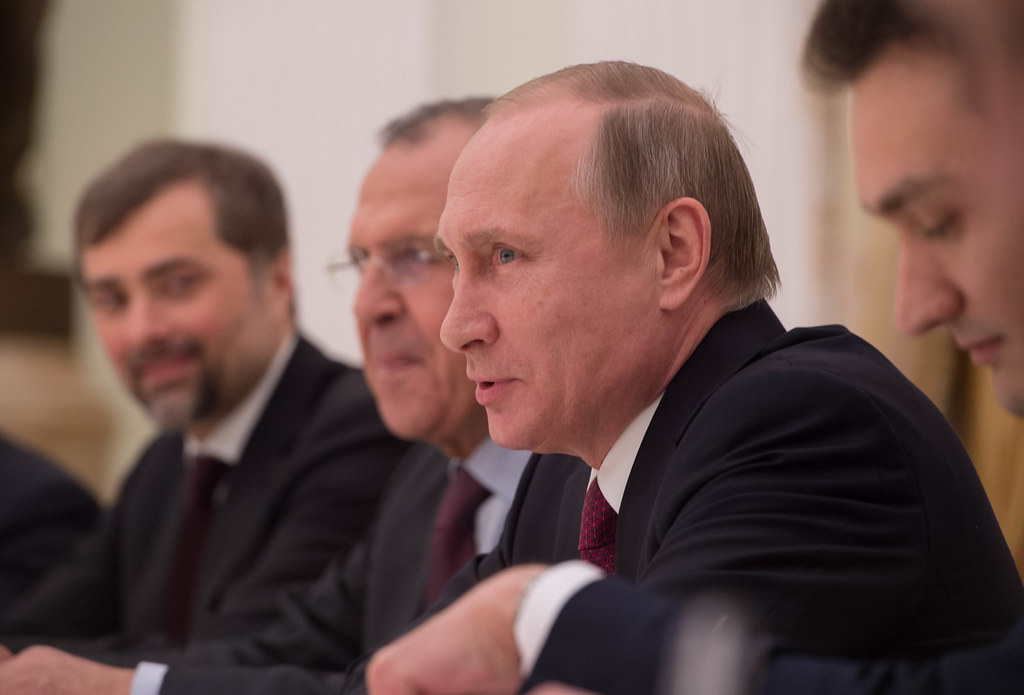President Barack Obama’s new sanctions against Russian state hacking are a political masterstroke—and they may turn out to be an invaluable parting gift to Donald Trump.
Trump aide Kellyanne Conway is right that punishing Russia for its cyber attacks on the Democratic National Committee and other U.S. political figures will “box-in” Trump. She’s wrong about why, though. The reason the new sanctions limit Trump’s room for maneuver is that they don’t affect any U.S. business interests—so no one in the U.S. can really complain about them or demand that they be removed. For example, Trump’s pick for Secretary of State, soon-to-be-retired ExxonMobil chief Rex Tillerson, doesn’t have to worry about additional restrictions on Russian oil industry investments, even if he manages to hold on to the 2 million unvested shares he has in the company.
Instead, the new sanctions are directed against Russian intelligence agents and Russian criminals who are on the FBI’s most wanted list. Given that Trump will soon be facing powerful leaders from his own Republican Party in the House and Senate who find Russia threatening and, if anything, want to increase sanctions, there’s no reasonable way for him to suggest undoing these new measures.
Congress demonstrated in the Magnitsky Act of 2012, designed to punish Russian human rights violators when Obama really didn’t want to do so, that it’s not just the president who can put sanctions in place. Congress in 2012 tied Obama’s hands by refusing to give the president something he wanted for Russia—approval of Moscow’s entry into the World Trade Organization—unless he signed the bill. Senate leaders like John McCain and Lindsey Graham and House Speaker Paul Ryan could now tie Trump’s hands the same way.
As a result, these new sanctions are likely to be permanent, unless Russia gives up something big in return. And while Obama’s actions may be largely symbolic, they are an irritant to Russia because they publicly name and shame Russian military intelligence for the hacking. That may embolden U.S. allies like France, Germany, and the Netherlands, who fear Russian cyber intrusion in their own upcoming electoral processes, to do the same. They put Putin on notice that he can’t keep on getting away with he has done in the past.
That combination is where the sanctions become a gift to Trump, because they serve the same basic purpose as U.S. actions in past years against China. Chinese military intelligence hackers stole intellectual property and infiltrated the Office of Personnel Management database. In that case Obama merely threatened sanctions against China rather than implementing them, but the U.S. Justice Department did name and shame some Chinese military hackers for their corporate espionage in a 2014 criminal indictment.
And after the Obama administration took these actions, China’s behavior changed. Beijing began to unilaterally curb its cyber attacks on the U.S. and other Western countries. While there’s no way to know for sure what motivated China, at their September 2015 summit Obama and President Xi Jinping reached a public accord to refrain from cyber espionage of each other’s corporate secrets. Chinese hacking didn’t end completely and the accord may not hold over time, but U.S. threats did help jump-start an ongoing dialogue on cyber issues with China.
China changed because its interests demanded it. Beijing is economically intertwined with, and dependent on, U.S. investment and trade, in a way that Russia is not. But given the contentious political landscape over Russia policy in the United States right now, Moscow also has an interest in demonstrating that it can change, to avoid further sanctions and maybe roll back some of those in place since its intervention in Ukraine in 2014.
If Putin wants to help Trump establish a more cooperative relationship with Russia, limiting hostile actions in the cyber realm can be the first step. After all, Putin faces his own reelection in 2018, so it is in his interests to prevent the U.S. from trying to interfere in that process, too.
Trump can claim an early victory if he reaches an agreement with Putin to limit the cyber damage that each country does to the other, and begins a dialogue that matches or exceeds what Obama has achieved with China. Of course Moscow and Washington will continue to distrust each other, and constant monitoring will be needed to see if an accord actually works.
But Trump should thank Obama for boxing him in. Trump can use Obama’s symbolic sanctioning of Russia’s cyber intelligence arm to further his own agenda with Russia—if Putin decides to cooperate.

